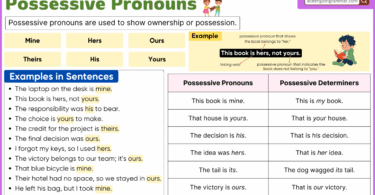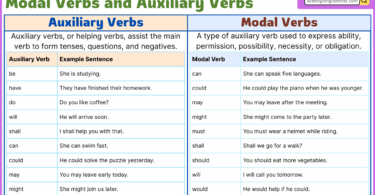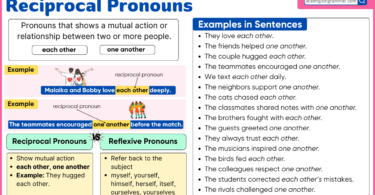An indefinite pronoun refers to a person, place, or thing without specifying which one. Words like someone, anything, everybody, and none are common examples. Many English learners struggle to use them correctly because some are singular, plural, or both depending on the sentence. There are many types of pronouns in English grammar. But this blog post helps learn indefinite pronouns with definitions, rules, and examples to improve your grammar skills.
An indefinite pronoun is a pronoun that does not refer to any specific person or thing. It is used when the exact identity of the subject is unknown or unimportant.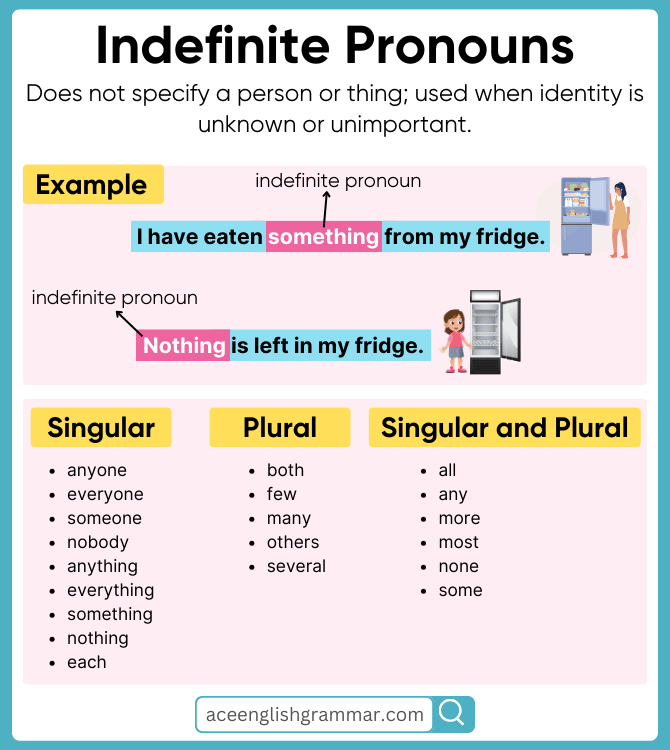
Table of Contents
Examples of Indefinite Pronouns in Sentences
Singular Indefinite Pronouns
- Someone is waiting outside.
- Nobody knows the answer.
- Everything is ready for the event.
- Each student must submit their assignment.
- Another cup of tea would be great.
Plural Indefinite Pronouns
- Few attended the meeting.
- Several have applied for the job.
- Both were excited about the trip.
- Many enjoy reading books.
- Others prefer coffee over tea.
Singular or Plural (Depending on Context)
- All is going well. (Singular)
- All were invited to the party. (Plural)
- None of the food was wasted. (Singular)
- None of the students were late. (Plural)
- Some of the cake is left. (Singular)
- Some of the guests have arrived. (Plural)
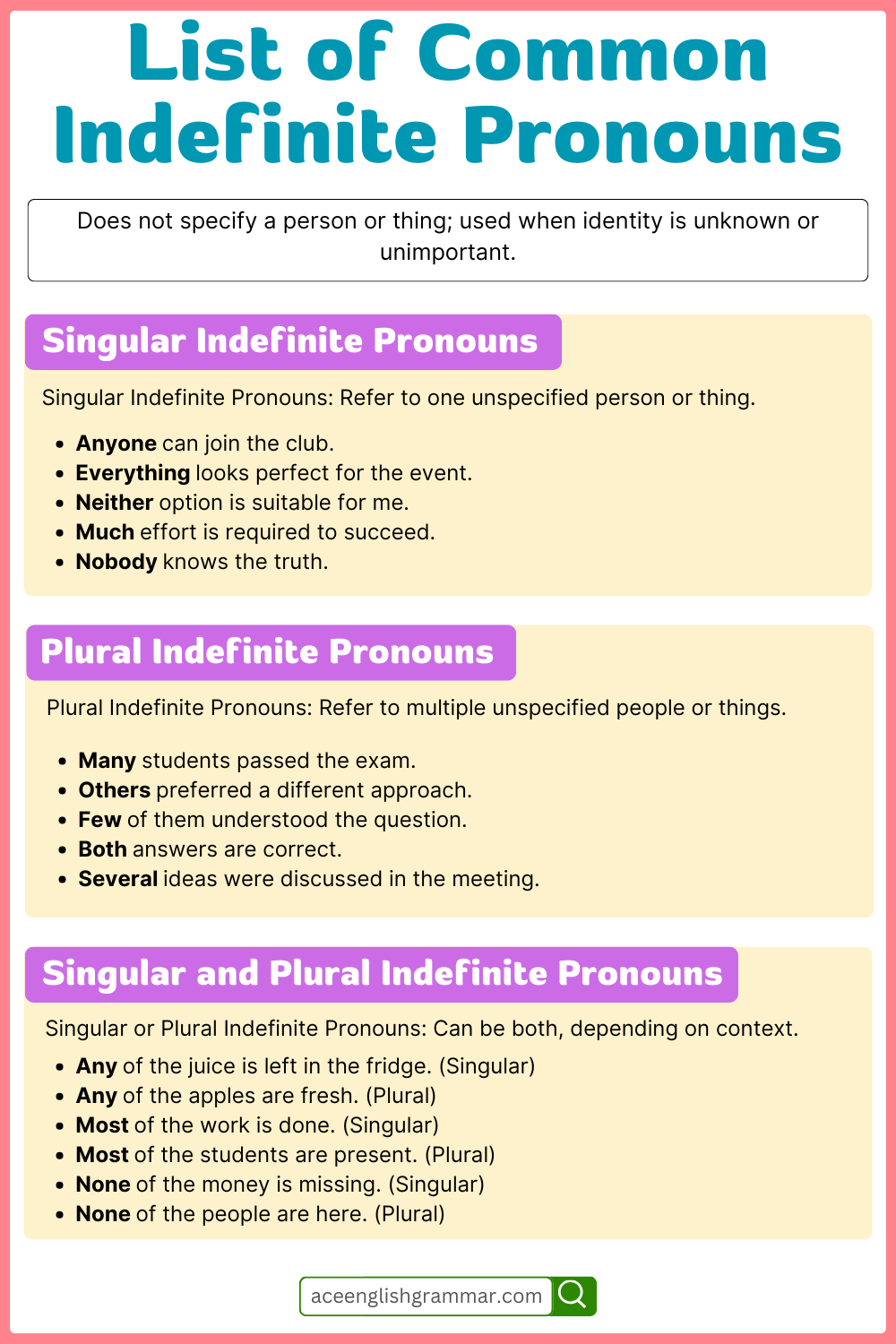
Usage Rules for Indefinite Pronouns
Singular and Plural Agreement:
Some indefinite pronouns are always singular, some are always plural, and others can be both depending on context.
Verb Agreement:
Singular indefinite pronouns take singular verbs, while plural ones take plural verbs.
Possessive Forms:
Indefinite pronouns can be used with possessive pronouns (e.g., “Someone’s bag is here”).
Double Negatives:
Avoid using double negatives with indefinite pronouns like “nobody” and “nothing” (e.g., “I don’t know nothing” ❌ → “I don’t know anything” ✅).
Definite Pronouns and Indefinite Pronouns
Here’s a difference between Definite Pronouns and Indefinite Pronouns:
| Category | Definite Pronouns | Indefinite Pronouns |
|---|---|---|
| Definition | Refer to a specific person or thing. | Refer to non-specific people or things. |
| Clarity | Clearly identifies who or what is being talked about. | Does not specify a particular person or thing. |
| Examples | he, she, it, they, we, you | someone, anyone, nobody, everybody, something, anything |
| Example Sentences | She is my best friend. (She refers to a specific person.) | Someone left their bag here. (Someone is not specific.) |
Indefinite Pronouns vs. Indefinite Adjectives
| Indefinite Pronouns | Indefinite Adjectives |
|---|---|
| Someone is at the door. | Some people are waiting. |
| Nothing is impossible. | No task is too difficult. |
| Anybody can join. | Any person can join. |
List of Common Indefinite Pronouns
Singular Indefinite Pronouns
- anyone
- everyone
- someone
- nobody
- anything
- everything
- something
- nothing
- each
- either
- neither
- much
Plural Indefinite Pronouns
- both
- few
- many
- others
- several
Singular or Plural Indefinite Pronouns
- all
- any
- more
- most
- none
- some
Are Indefinite Pronouns Singular or Plural?
- Always Singular: each, everyone, somebody, anything, nobody
- Always Plural: few, many, others, several
- Singular or Plural (depends on context): all, any, most, none, some
Why Indefinite Pronouns Are Important in English?
Indefinite pronouns help us speak and write clearly when referring to unknown or general subjects. They are commonly used in both formal and informal settings, making them essential for effective communication.
Common Mistakes and How to Fix Them
Incorrect Subject-Verb Agreement
- Incorrect: Everybody know the answer. ❌
- Correct: Everybody knows the answer. ✅
Using Double Negatives
- Incorrect: I don’t know nothing. ❌
- Correct: I don’t know anything. ✅
Confusing Indefinite Pronouns with Indefinite Adjectives
- Incorrect: Some are missing from the list. ❌
- Correct: Some items are missing from the list. ✅
FAQs
An indefinite pronoun is a pronoun that refers to an unspecified person or thing.
Some are always singular, some are always plural, and some can be both depending on the context.
Yes, they can take possessive forms, such as “someone’s,” “nobody’s,” and “anyone’s.”
Indefinite pronouns stand alone, while indefinite adjectives modify nouns.
Conclusion
Indefinite pronouns are a key part of English grammar, allowing us to speak and write about non-specific people and things. By understanding their usage rules and avoiding common mistakes, learners can improve their fluency and accuracy in English.
Read More

